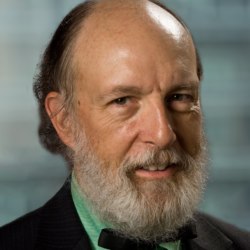Liberals and Libertarians
Editor’s Note: Earlier this year, inspired by media reports – accurate ones – of a guarded and growing rapprochement between Ralph Nader and Patrick Buchanan on issues where they share common values, we published an editorial entitled “A Left-Right Alliance Against Public Sector Unions?” Drawing from Nader and Buchanan’s recently published missives, we identified five areas of left/right convergence: (1) controlling security state overreach, (2) eliminating corporate welfare, (3) fighting military overspending and waste, (4) cracking down on Wall Street financial fraud, and (5) revisiting international agreements that undermine American sovereignty. This piece by noted libertarian Randal O’Toole keeps alive this new dialog, citing more reasons why liberals and libertarians have a very compelling list of policy issues to discuss and hopefully find common ground.
Brutality on the part of overly militarized police forces. Too many people in prison due mainly to a war on victimless crimes. Routine torture. The national surveillance state. A president who believes he can remotely kill anyone he wants without trial or due process.
Asset forfeiture. States and cities that routinely take away people’s property rights without compensation or take people’s property with compensation to give to private developers on the pretext that, because the new owners will pay more taxes than existing owners, it is in the public interest.
These are a few of my least-favorite things about America today. This list heavily overlaps eleven reasons why liberal Dave Lindorff is ashamed to be an American. On most of these issues (except, perhaps, regulatory takings), liberals and libertarians are in full agreement.
Yet on so many other issues, liberals regard libertarians as kooks who are in the thrall of the evil Koch Brothers and their scheme to make everyone dependent on the petroleum industry. The Antiplanner has personally been attacked many times by people who used to call me their friend.
All of the above policies, along with all or nearly all of the policies on Lindorff’s list that aren’t on mine, involved government action. The difference between liberals and libertarians is that the former see these policies as aberrations from the norm that can fixed by putting the right people in charge, while libertarians see them as predictable consequences of giving government power. As P. J. O’Rourke says, “giving government money and power is like giving teenage boys whiskey and car keys.”
Many if not most libertarians today are former liberals who realized that the problems they saw were not unusual but merely examples of all the problems with government. This is hardly a new idea, as it goes back through Henry David Thoreau to Thomas Jefferson and Thomas Paine. Despite its ancient lineage, proof of the pervasive failings of government managed to win James Buchanan a Nobel Memorial Prize in economics.
What will it take to convince more liberals to become libertarians? When will Naomi Klein realize that her support for light rail will do more to enrich a lot of corporations than it will to fix climate change? When will supporters of subsidies to wind power realize that they are really just supporting the natural gas industry? When will endangered species advocates realize that the best way to save many species may be to privatize them?
I don’t know the specific answers to these questions. But I do know that progressives need to seriously question whether their proposals to give government more power over people’s lives and property are compatible with their rejection of the NSA, CIA, the war on marijuana, and other big government programs.
* * *
About the Author: Randal O’Toole is an American public policy analyst. The majority of O’Toole’s work has focused on private land rights, particularly against public land use regulations and light rail. Since 1995, he has been associated with the Cato Institute as an adjunct scholar and frequent anti-light rail campaigner. O’Toole was the McCluskey Visiting Fellowship for Conservation at Yale University in 1998, and has served as a visiting scholar at the University of California, Berkeley and Utah State University. O’Toole studied economics at the University of Oregon. This post was originally published on O’Toole’s blog, The Antiplanner, and appears here with permission.
* * *
RELATED POSTS
California’s Emerging Good Government Coalition, November 4, 2014
The Challenge Libertarians Face to Win American Hearts, October 14, 2014
The Looming Bipartisan Backlash Against Unionized Government, August 26, 2014
A “Left-Right Alliance” Against Public Sector Unions?, May 20, 2014
* * *
Forming a Bipartisan Consensus for Public Sector Union Reform, January 28, 2014
